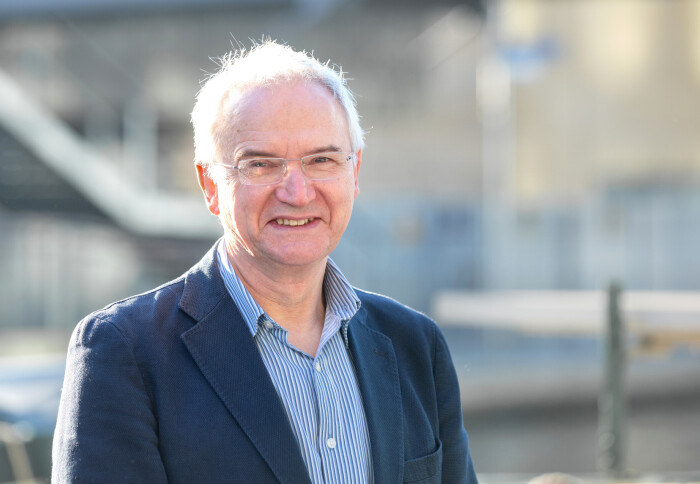HIC-Vac: Improving vaccine development through human challenge studies
by Lou Lee

Professor Peter Openshaw explains how HIC-Vac is developing human challenge studies to improve vaccines against major infections.
The HIC-Vac network aims to reduce the burden of some of the world’s most important infectious diseases by boosting research, communication and advocacy for human challenge studies. One of the network’s main aims is to strengthen capacity for human challenge studies in low- and middle-income countries (LMICs), where preventing disease will have the biggest impact.
Human challenge studies can play a crucial role in accelerating vaccine development by establishing early ‘proof-of-concept’ of vaccine efficacy in people. They involve deliberately infecting healthy volunteers with a small dose of a pathogen, such as a virus or bacteria. Once an infection model has been established and shown to be safe, it can then be used to test the efficacy of vaccines. This can reduce the time and cost of developing and testing vaccine candidates.
Hosted at Imperial within the National Heart and Lung Institute (NHLI), the HIC-Vac network was set-up in 2017 with support from the Global Health Challenges Research Fund Networks in Vaccines Research & Development, co-funded by the Medical Research Council (MRC) and the Biotechnology and Biological Sciences Research Council.
In November 2023, HIC-Vac received funding for another two years from the UK Research and Innovation (UKRI) International Science Partnerships Fund, making it a 7.5 yearlong network that has received over £4.8 million of funding. It now has more than 510 members from 46 different countries, including representation from 20 LMICs.
We spoke to Professor Peter Openshaw, Professor of Experimental Medicine and HIC-Vac Network Co-Director, about HIC-Vac’s aims and ambitions.
What exactly is HIC-Vac and what are its aims?
“Initially, HIC-Vac was set up as a fund to enhance the use of human challenge to accelerate the development of vaccines for infections of high global impact. One of our first projects supported the process of setting up human challenge studies in Zambia, facilitating the development of ethical and regulatory frameworks to guide the conduct of these studies through engagement of local authorities. This was the first time Ethical and Regulatory officials in Zambia engaged with human challenge studies, and this has since led to the development of a local Framework with support from the Wellcome Trust.
“Our studies have links to low- and middle-income countries, facilitating the development and local appraisal of the infrastructure that's needed to start doing human challenge studies in LMICs. We need to know whether the studies we’re doing in rich parts of the world are relevant to vaccine development for developing countries; it's in resource-poor areas with high rates of infectious diseases that vaccines can potentially have the greatest impact.”
What are some of HIC-Vac’s most important achievements to date?
“I'd say one of the most important things we've achieved is to create a worldwide community of people who are who are doing or considering human challenge studies. Bringing all these people together, not only in terms of being eligible for small grants, but also attending our annual meetings – those are crucial in seeing what other people are doing in terms of building capacity for human challenge studies.
“We also helped launch the world's first human challenge study for COVID-19, funding and supporting the study, as well as instigating a public consultation exercise exploring acceptability, concerns and opinions regarding SARS-CoV-2 challenge. HIC-Vac subsequently coordinated the public involvement, whereby members of the public themselves influenced and improved the study design, public-facing information and informed consent process.”
“HIC-Vac has had a huge effect globally. There are many more groups now who can conduct human challenge studies because of the enabling support that they've received through HIC-Vac.”
The network received renewed funding from UKRI last year – what do you hope to achieve with this further funding?
“In this next round of funding, we will extend our reach into parts of the world that previously haven't attempted to do human challenge studies and link them with groups already doing challenge studies so that they can receive the advice and support of those with experience.
“We can reassure local ethics committees that many of these studies have been done safely and have generated a lot of information which is highly relevant to the development of vaccines. We are now finding new correlates of protection that can speed up vaccine development for infectious diseases around the globe. For example, we funded a project that brought together an Africa-Asia collaboration to build a context-specific and grounded understanding of social and ethical issues around challenge studies in these regions. This social science and ethics research supported LMIC capacity-building for conducting human challenge studies, and developing and sharing topic-specific guidance, as well as best practice, including regulatory and ethical frameworks. The consortium included representation from the World Health Organization (WHO), who will be critical in underpinning future WHO international guidelines. These investments take time to bear fruit, but HIC-Vac is enabling progress to be made in areas that were previously static.”
Membership to HIC-Vac can be acquired by filling out a form, accessible from its website. You can also follow them on X at @hic_vac.
Article text (excluding photos or graphics) © Imperial College London.
Photos and graphics subject to third party copyright used with permission or © Imperial College London.
Reporter
Lou Lee
Faculty of Medicine Centre